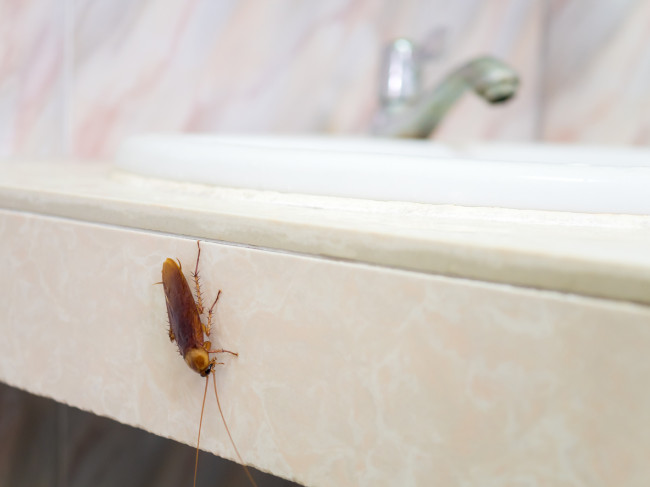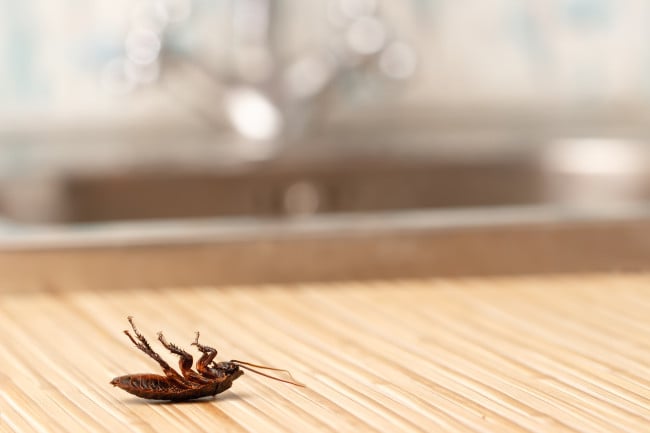Take back your deck! How to win the war with mosquitoes and enjoy outdoor living again
- For a low-tech solution, set up an outdoor fan to prevent mosquitoes from landing
- For gadget fans, Thermacell's patio shield repeller is designed to clear a 15-foot area

You pay for it, you should use it.
iStock
If you have a deck, garden, or patio, but don't use it very much, chances are mosquitoes are to blame.
Many New Yorkers with outdoor space resign themselves to the fact that they can only use their outdoor space at the very beginning and end of the summer because of unrelenting mosquito attacks.
Take heart: While it’s probably impossible to completely rid your outdoor space of mosquitoes, there are steps you can take to get the situation under control and head outside again.
You can try planting lots of lemon grass and lavender, herbs that allegedly have mosquito-repelling qualities, but unless you’ve got a pretty mild mosquito issue, you’re probably going to need a bigger bug deterrent. Consumer Reports, which tests products by sticking people’s arms in mosquito-filled chambers, recommends avoiding these ineffective repellents.
Here are some more ways to combat mosquitoes and take back your deck.
[Editor's note: An earlier version of this post was published in July 2021. We are presenting it again with updated information for July 2025.]
Stop the problem before it starts
The first rule of combating mosquitoes is to make sure there’s no standing water in or around your outdoor space—that’s where they breed. But if you do have spots where water collects (or you must have a koi pond or bird bath) invest in some Mosquito Dunks, which contain a naturally-occurring bacteria that kills larvae. The product also helps deter fungus gnats, and is safe for use around kids and pets. We’d recommend using a few of these for best results. A two-pack of mosquito dunks sells for $7.50 on Amazon.
It's a good idea to change the water in a bird bath frequently. You can also invest in an inexpensive solar fountain, which circulates the water and disrupts mosquitoes' breeding cycle. A solar-powered birdbath fountain sells for $15 on Amazon.
Create a hostile environment
For a low-tech option, consider an incense-like coil many campers enlist: you light and let the coil smolder, releasing a bug-repelling smoke. It's recommended you place one every 10 feet for best results. A four-pack of mosquito repellent coils sells for $13 on Amazon.
Many people like to use a fan outside to blow bugs away—lock the fan to prevent it from oscillating so it's blowing directly at you and the insects will not be able to land on you. A 16-inch Lasko pedestal fan is $30 at Home Depot.
Thermacell's patio shield mosquito repeller is designed to clear a 15-foot area using a synthetic Allethrin formula. Reviews are generally positive, but you will need to eventually replace the 12-hour fuel cartridge. You can get a 5 percent discount on refills and delivery by signing up for a subscription. The patio shield repeller is $27 at Thermacell.
Mosquito control experts are not fans of bug zappers, which tend to kill the wrong bugs—and the distinctive electric crackle when an insect is vaporized can be annoying.
As an alternative, consider a DynaTrap, which former Brick senior writer Emily Myers has used with success. The product attracts mosquitoes via a combination of CO2, warmth, light, and a fan, which sucks them into a chamber, where they dehydrate and die—quietly. The product claims to break the mosquito life cycle in six weeks. A small version is available for $39 at DynaTrap.
Wear your repellent
Covering up is another recommended way to avoid bug bites. If you know you're going to be hanging out in a buggy place often, you can also invest in some clothing with repellent in it. L.L.Bean's No Fly Zone clothing line is treated with permethrin, a synthetic bug repellent. The treatment is effective for up to 70 washes. Women's No Fly Zone jacket is $99 at L.L.Bean.
Repel them
Good old bug spray is one of the most effective ways to keep mosquitoes at bay and the key distinction among brands is the active ingredient.
Repellents with DEET are among the ingredients that the CDC recommends and the American Association of Pediatrics gives the green light for their use on children if the concentration is 30 percent or less.
Another CDC-approved option are repellents containing the active ingredient Picaridin; look for a 20 percent concentration.
Still another CDC-sanctioned repellent ingredient is lemon eucalyptus, which is most effective at a 30 percent concentration.
—Earlier versions of this article contained reporting and writing by Mimi O'Connor. It was updated for July 2025 by Jennifer White Karp.
You Might Also Like




























